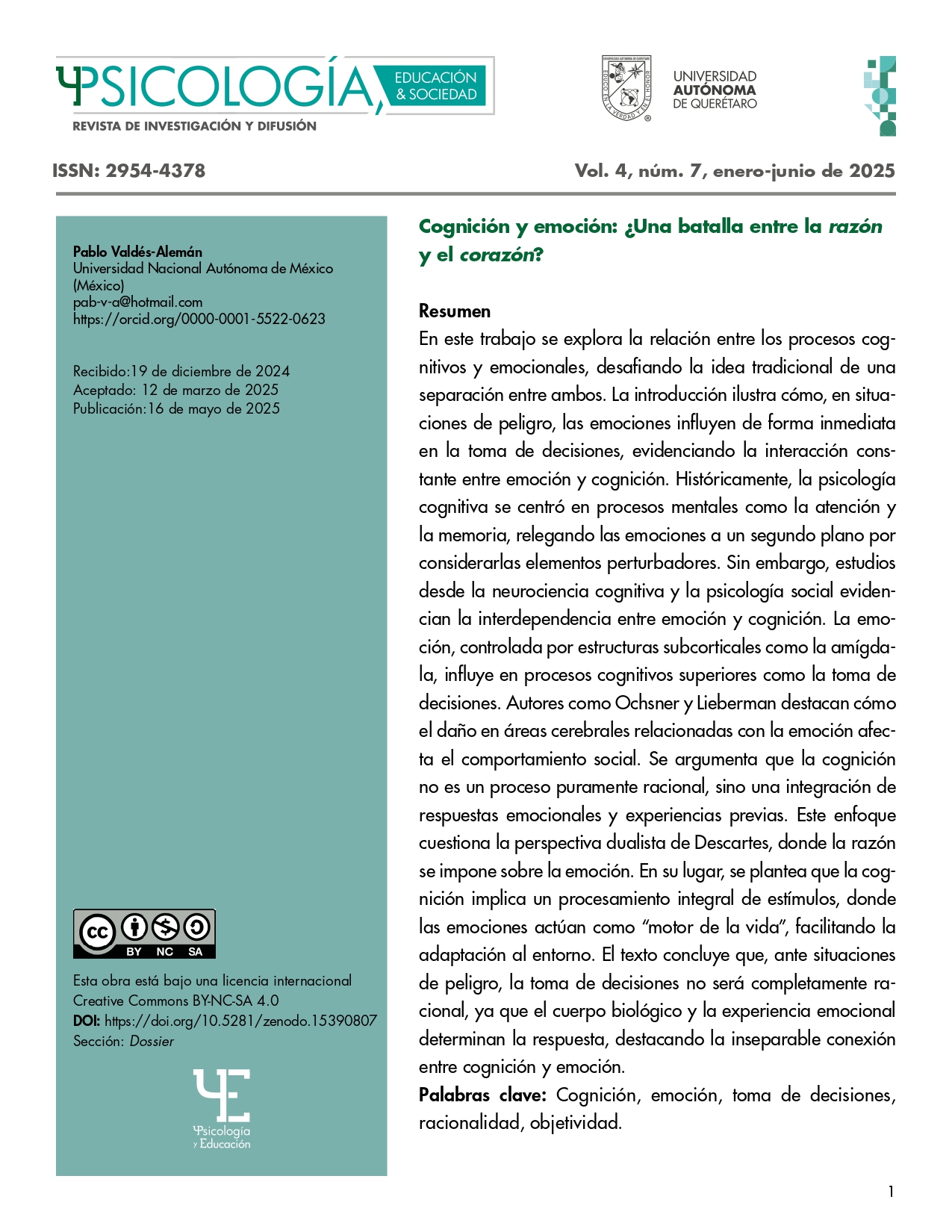Abstract
This paper explores the relationship between cognitive and emotional processes, challenging the traditional notion of a separation between them. The introduction illustrates how, in dangerous situations, emotions have an immediate influence on decision-making, highlighting the constant interaction between emotion and cognition. Historically, cognitive psychology focused on mental processes such as attention and memory, relegating emotions to a secondary role, as they were considered disruptive elements. However, studies from cognitive neuroscience and social psychology reveal the interdependence between emotion and cognition. Emotion, regulated by subcortical structures such as the amygdala, influences higher cognitive processes like decision-making. Authors such as Ochsner and Lieberman highlight how damage to brain areas associated with emotion affects social behavior. It is argued that cognition is not a purely rational process but an integration of emotional responses and prior experiences. This approach challenges Descartes' dualistic perspective, where reason prevails over emotion. Instead, it is proposed that cognition involves a comprehensive processing of stimuli, where emotions act as the "engine of life," facilitating adaptation to the environment. The text concludes that, in dangerous situations, decision-making will not be entirely rational, as the biological body and emotional experience determine the response, emphasizing the inseparable connection between cognition and emotion.

This work is licensed under a Creative Commons Attribution-NonCommercial-ShareAlike 4.0 International License.
Copyright (c) 2025 Psicología, Educación & Sociedad

